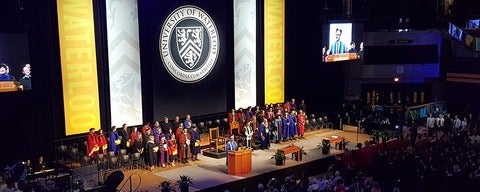Water Institute member's image of droplets in running for national award
This article was originally published on the Faculty of Engineering's news site.
A Water Institute member is in the running in a national contest designed to showcase striking images captured by researchers.
Zhao Pan, a professor of mechanical and mechatronics engineering, is co-creator of one of 20 images in the finals of the 2022 edition of Science Exposed, a contest organized by the Natural Sciences and Engineering Research Council of Canada.






